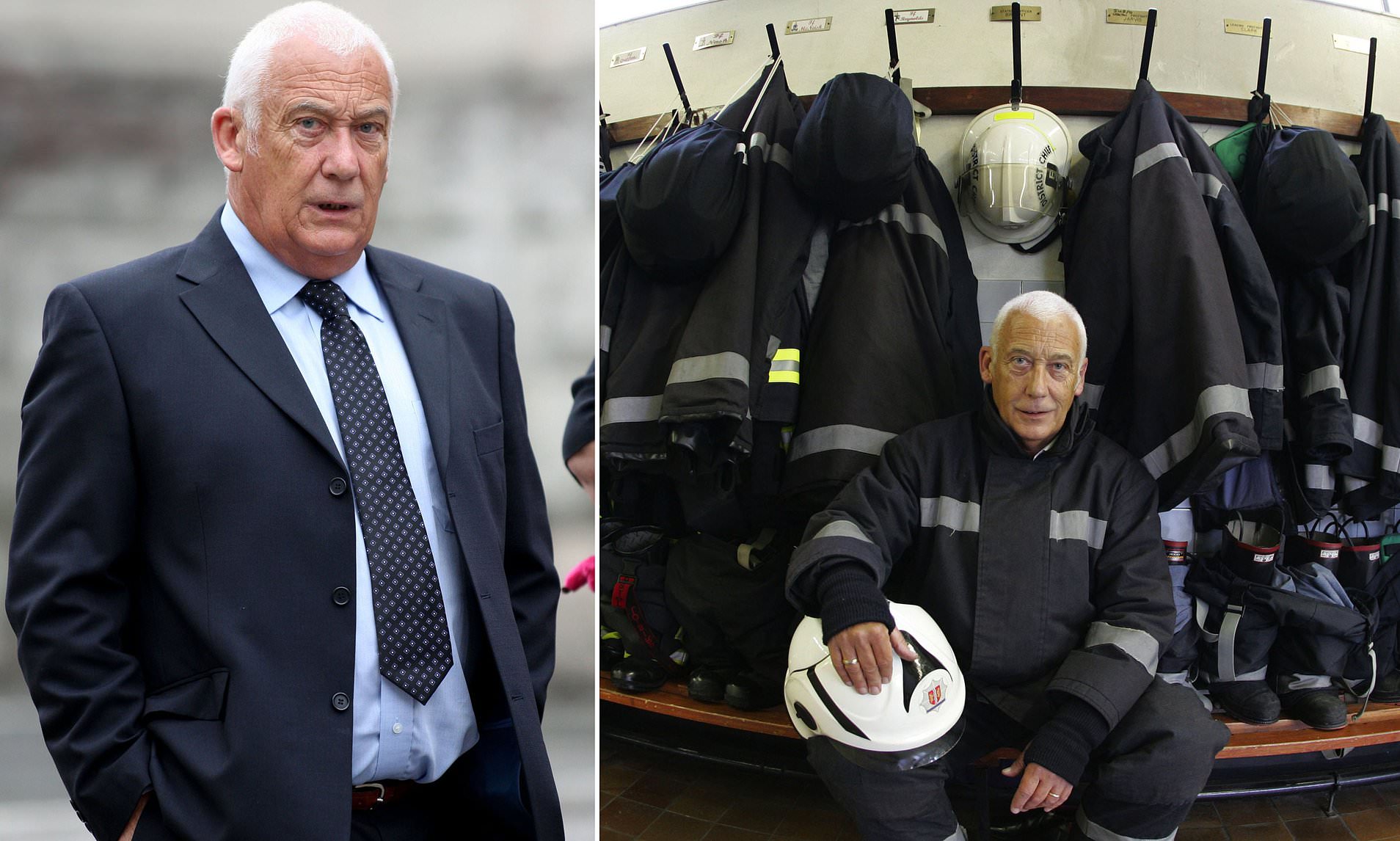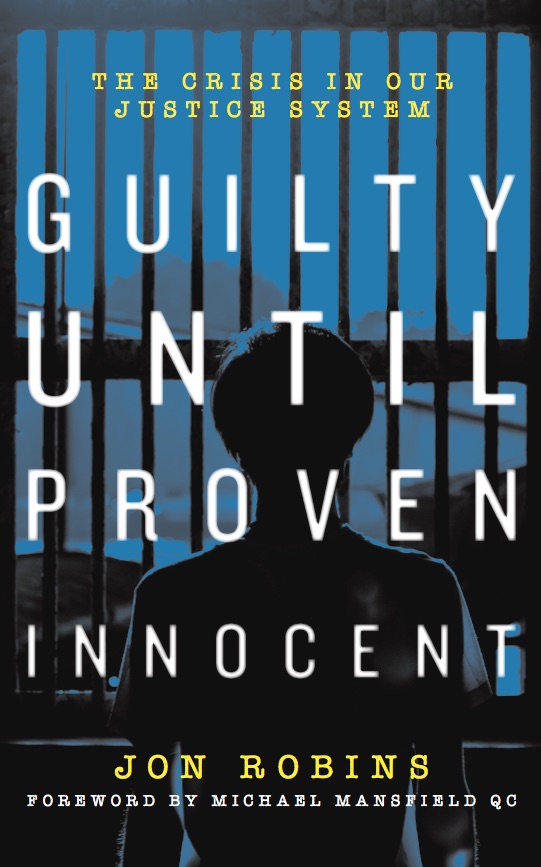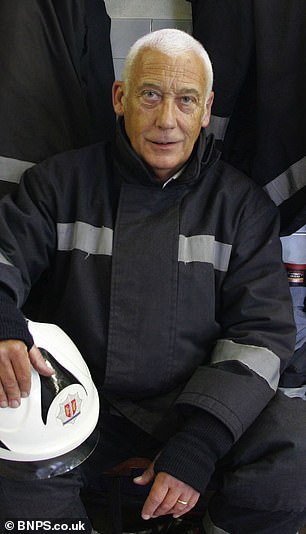A former fireman with an unblemished record of public service who spent three years in jail after being falsely accused has spoken out about his 20-month ongoing wait for compensation.
David Bryant had been declared innocent and released from jail in 2016 after his accuser Danny Day was revealed to be a serial liar.

An unblemished career in public service: From this week’s Daily Mail report
A month after the ruling, Bryant launched a claim for compensation with the Ministry of Justice (MoJ) for the time he wrongly spent in jail. According to a report in the Daily Mail, Bryant had been told by the MoJ that it would take three months to resolve.
The case of David Bryant and Danny Day featured in Guilty Until Proven Innocent: The crisis in our justice system (Biteback 2018)
‘It’s diabolical,’ David Bryant told the Mail. ‘I’m just really beginning to wish I had never started it to be honest.’ His barrister, Rupert Butler told the paper: ‘It is bad enough Dave was deprived of his liberty for so long as a result of incompetent policing and poor prosecution decisions. But to find himself at the mercy of the deep state’s inefficient and indifferent bureaucratic machine is an insult too far for someone who devoted his life to impeccable public service – he deserves far, far better.’
 ‘How on earth could a jury buy this story? It sounded like a load of cobblers…’
‘How on earth could a jury buy this story? It sounded like a load of cobblers…’
In an extract from Guilty Until Proven Innocent (Biteback, 2018), Jon Robins recalls how a well respected member of the community ended up in prison and his life trashed as a result of the allegations of a ‘chronic liar’.
‘You are free to go. I am very sorry.’ With these words, Lord Justice Leveson quashed the conviction of David Bryant in the Court of Appeal in July 2016. A former fireman of seemingly impeccable character, he had been accused of abusing a boy four decades earlier. The boy’s name was Danny Day.
 Danny Day had gone to the police in 2012. As a 14-year-old, Day had worked at the British Legion in Christchurch, Dorchester collecting glasses where the firemen used to drink. He claimed that Bryant and a colleague, Dennis Goodman (who had since passed away), invited him back to the fire station to play darts. Day went back with the men and nothing untoward happened. But he explained that the second time he was at the station they were more ‘hands on’.
Danny Day had gone to the police in 2012. As a 14-year-old, Day had worked at the British Legion in Christchurch, Dorchester collecting glasses where the firemen used to drink. He claimed that Bryant and a colleague, Dennis Goodman (who had since passed away), invited him back to the fire station to play darts. Day went back with the men and nothing untoward happened. But he explained that the second time he was at the station they were more ‘hands on’.
On the third occasion, Day alleged that he was subjected to a horrific rape. He stated that he had been ‘held down over a table by the pair, who then took it in turns to rape him while having sex with each other’. Day was left screaming with pain. Goodman then apparently chucked some money at Day and asked if he would like to come back.
Danny Day did not report the attack at the time but claimed that he had confided in an old school friend called Chris White. Day only went to the police with his story after returning to the area in 2012 and discovering that Bryant had become a respected member of the community.
He pushed a note through Bryant’s letterbox:
Dave, its Danny Day. 35 yrs ago I used to collect the glasses in the Legion and I am the same one that you … played darts with in the fire station (remember!) At 6 o’clock tonight, I am going to the police station to report what went on and at 7 to the national papers. I think it is time you and me had a chat. One way or another you will pay for what you done.
The retired firefighter told the court Danny Day had not crossed his mind since the mid-1970s. The court had received more than thirty letters from friends, family and former colleagues of the ex-fireman attesting to his good character. At the trial, a witness explained that Danny Day’s description of the fire station, whilst consistent with the modern station, was different from how the building looked at the time of the attack. Nor, it was argued, would it have been possible for other firefighters to have ignored an attack that involved twenty minutes of screaming.
Danny Day waived his right to anonymity to talk to the press. ‘I don’t think justice has yet been fully served in this case,’ he told the Bournemouth Daily Echo after Bryant was sentenced to six years. Bryant’s upstanding position in the community had been a cunning cover for his crimes, Day argued. ‘It is as though because he has led an unblemished life since then that somehow makes up for it,’ he said. ‘But I do still want to encourage anybody who has experienced this sort of thing to come forward. It can’t be left alone.’
Bryant’s application for an appeal was dismissed by a single judge. Day offered his thoughts to the Echo, noting with apparent pleasure that his abuser ‘didn’t even get past the first hurdle’. ‘The first judge looked at it and dismissed it,’ he said. ‘I don’t know how he got that far to be honest, he’s in the place he should be in.’ As a result of an appeal by Day, the sentence was increased from six to eight–and-a-half years.
Danny Day was awarded £12,000 from the Criminal Injuries Compensation Scheme. He then launched a £200,000 damages claim against Bryant and Dorset County Council.
A chronic liar
That civil claim ended up on barrister Rupert Butler’s desk. A clerk at his chambers, 3 Hare Court, asked Butler to draft a defence to the claim as a favour to keep sweet a firm of solicitors that was new to chambers. Butler, a commercial barrister, reluctantly agreed to take a look.
‘I took the papers thinking: “Crikey, there really is not a defence as it has been through a jury trial to the criminal standard of proof’,”’ Butler recollected. Then the barrister began to read the medical reports attached to the particulars of the claim, including a report by a psychiatrist that Danny Day’s solicitors had instructed. He could not believe what he read.
Giving judgment, Mr Justice Singh summarised the evidence: ‘[Over] a period dating from 2000 to 2010, Day had to seek medical attention from his GP in relation to what can only be described as his being a chronic liar.’
On 17 August 2010, Danny Day was referred by his GP to mental health services with a letter noting that he had ‘a history of lying and cheating and that it was suspected he has an underlying personality disorder’. According to the medical records, Day said that his psychological problems came from several sources, one being his poor relationship with his parents. He never mentioned being raped.
Danny Day claimed he had to forsake his place on the British boxing team at the 1984 Los Angeles Olympics because of the trauma the assault caused him. In the unused material from the original trial, there were two statements: one was from Nick Gregory, said to be a former England boxing coach, who wrote about Day’s boxing career and his selection for the Olympic Games in 1984; another came from Day’s partner and described his boxing achievements – Day had apparently won fifty-seven out of sixty-one bouts, a better record than the legendary Muhammad Ali (who also fought sixty-one bouts but only managed to win fifty-six).
Whilst in prison, David Bryant happened to be on the same wing as Chris White, the old school friend that Danny Day claimed to have confided in. White told Bryant that he had not been friends with Day nor had he been told of any abuse.
The barrister Rupert Butler had not done personal injury work for years until this case. He now represents the estate of the late Labour peer Lord Janner, whose life was dogged by allegations of child sexual abuse.
As soon as he read Danny Day’s claim form, the barrister was suspicious. ‘Instinctively, I thought how on earth could a jury buy this story? It just sounded like a load of cobblers,’ he told me. The medical report convinced Butler that Day was a compulsive liar. ‘I did not understand the dynamics of the way these things work. I understand them better now. After a while, compulsive liars become very good at lying.’
The fact that an accuser is a compulsive liar does not necessarily mark them out as easy to discredit. In fact, Butler reckons that compulsive liars can make pretty formidable opponents in court. ‘As a defendant, you have very little ammunition to challenge that person because your case is: “I scarcely knew this person. It wasn’t me. I wasn’t there.”’ The narrative goes almost entirely unchallenged unless there are internal inconsistencies. ‘But then the compulsive liar can shrug their shoulders and blame it on the passage of time,’ Butler continued. ‘Furthermore, they become plausible in their mistakes because they believe the narrative themselves. By the time they stand up and tell the courts it is in their own minds a fact.’
Butler has met Danny Day. He has, if not sympathy, then pity for the man who has wreaked such damage.
‘I have said to David Bryant and his supporters, you might have a strong negative view about Danny Day, but give him credit for the fact that he is the only person I have ever heard of who went to a doctor and said: ‘I am a liar.’ Imagine how different the world would be if politicians did that. People don’t tend to admit dishonesty as a medical failing; Day recognised that he had a personality disorder and wanted help. He threw himself on the mercy of doctors who did not or could not help him.’
Rupert Butler
Butler believes that Day’s accusation was not motivated by a hatred of Bryant and Greenway, but was instead an attempt to win over a psychiatric nurse with whom Day was besotted. According to Butler, Day is a man ‘who has not been loved in his life’ and who ‘goes to extreme measures in order to get attention’. Butler does not believe that Day had any malicious intent against Bryant nor was he driven by the possibility of compensation.
‘Our system of justice is incompetent at dealing with these cases. It is unfair to ask a jury to unravel the complexities of Danny Day’s psychological makeup. We have got to get better at dealing with these cases and one way to do that is for the police not to believe complainants when they walk through the door.’
Rupert Butler on the David Bryant
Butler has talked to Danny Day. ‘We both agree that he was as much let down by the police as David Bryant was,’ the barrister recalled. ‘Danny should never have been allowed to go into the witness box. Dorset Police let him down horribly, the CPS has let him down horribly and the criminal justice system has let him down horribly, and now the civil justice system was delivering the same problem. If somebody had got hold of the case in a sensible way at the start, no charges would have been brought.’
A force of nature
That David Bryant had his conviction overturned was largely down to the perseverance of his wife Lynn who died shortly after her husband was released from prison. Lynn found that the police had been working off old plans of the fire station; however the layout as it actually was at the time of the alleged incident did not match Day’s evidence.
Ahead of the 2013 trial at which David Bryant was convicted, his wife also discovered that the pool table upon which Day claimed he was pinned down and raped was actually purchased years after the alleged attacks in 1992.
Only six months after David Bryant’s conviction was overturned, Lynn tragically died from sepsis. Her immune system had not been able to fight off an infection and sepsis had set in.. Bryant was convinced that the traumatic experience had killed her. ‘You couldn’t prove it, but it stands to reason,’ he said.
Alex and Simon Stanley have known David and Lynn Bryant since the 1980s. Simon worked alongside David as a firefighter and was best man at Lynn and David’s wedding. ‘Nobody believed the allegations. We just couldn’t make the police see that.They just didn’t investigate it – they didn’t bother. They didn’t want to know. That was what got to Lynn the most,’ Alex told me.
The couple supported Lynn throughout her campaign and visited David in prison. On what happened to be Alex and Simon’s twenty-fifth wedding anniversary, the four of them were at the Court of Appeal, where David’s conviction was finally overturned.
The anger, Alex said, ‘ate away’ at Lynn. ‘I lost my mum in 2010. That feeling of hopelessness is what it was like,’ Alex told me. ‘You can’t turn to anyone for help. Nobody wants to help. He had been found guilty and you can’t do a thing about it. Normally, you can pick up a phone, write a letter, find a way out – but this was like losing somebody.’
She described the phone call from barrister Rupert Butler offering pro bono help as being like ‘a tidal wave’. ‘We thought: “Oh my God, at last, somebody believes in us.” But how could he see it for what it was so easily, and yet the police couldn’t? I don’t get it.’
She describes Lynn Bryant as force of nature. ‘She would always be on at Rupert. She wouldn’t let anything drop and if someone wasn’t doing what they should, she would tell them. She said, “I am not stopping until he’s out of prison and his name is cleared.” That’s what we have done.’







